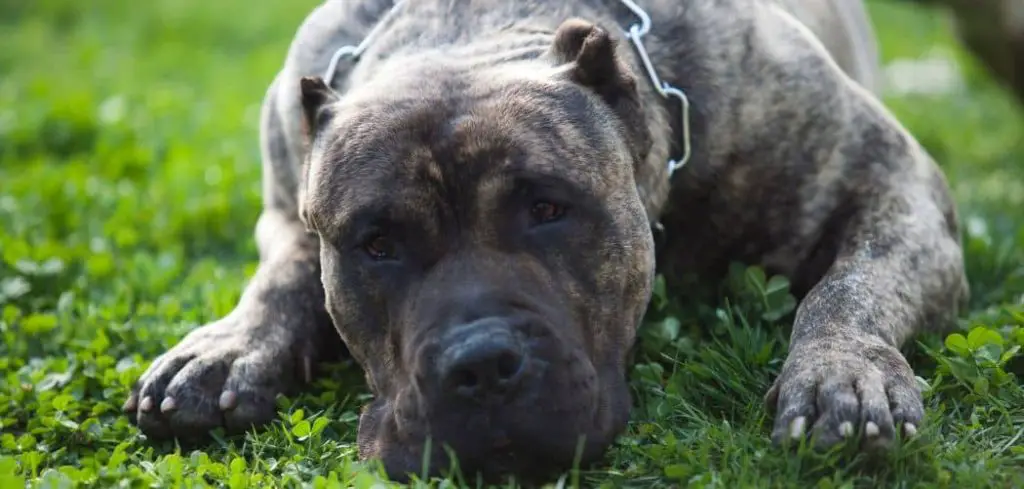Smelly watery diarrhea in dogs can be distressing for both pets and their owners. The foul odor combined with liquid stool often points to irritation in the gastrointestinal tract and could signal an underlying issue that needs attention.
We outline the common causes of smelly watery diarrhea in dogs, what you can do at home, and when to seek veterinary help.
Smelly Watery Diarrhea in Dogs — Why It Happens
Smelly watery diarrhea in dogs is usually the result of irritation, infection, or disruption in the digestive system. Food intolerances, bacterial infections, parasites, sudden dietary changes, and inflammatory conditions are some of the most common triggers.
In senior dogs or puppies, the problem can become serious quickly due to rapid fluid loss and dehydration.
Stress, toxins, and more serious illnesses can also contribute, making it essential to identify the cause as early as possible.

Smelly Watery Diarrhea in Dogs: Common Causes
Dietary Indiscretion
Dogs are curious by nature, and many will eat things they shouldn’t — from spoiled food in the trash to fatty table scraps.
When this happens, the digestive tract can become inflamed, leading to watery diarrhea with a particularly strong odor.
Owners may also notice bloating, gas, or vomiting. While mild cases sometimes resolve, recurring or severe smelly diarrhea suggests something more serious may be going on.
Read more: Dog Watery Diarrhea No Other Symptoms (Here’s why)
Bacterial Infections
Harmful bacteria such as Salmonella, Campylobacter, or Clostridium can cause acute diarrhea in dogs.
These infections often produce particularly foul-smelling stool due to the toxins produced by bacteria in the intestines.
In addition to diarrhea, dogs may appear lethargic, run a fever, or refuse food. Left untreated, bacterial infections can become severe and even life-threatening, especially for puppies or senior dogs.
Parasitic Infections
Parasites like Giardia, coccidia, and whipworms are notorious for causing foul-smelling watery diarrhea in dogs.
Giardia in particular is associated with extremely pungent stool, often with mucus or grease-like consistency.
Puppies and dogs with weakened immune systems are at higher risk. If the diarrhea persists or worsens, testing and targeted treatment are critical to prevent long-term health complications.
Food Intolerances and Allergies
Some dogs are sensitive to certain ingredients such as dairy, grains, or specific proteins. When a dog ingests food that doesn’t agree with their system, it can lead to loose, smelly stools.
Unlike bacterial or parasitic infections, food intolerance may cause intermittent diarrhea, flatulence, and skin irritation.
Long-term exposure to problematic foods may worsen digestive sensitivity, so identifying and eliminating the culprit is key.
Inflammatory Bowel Disease (IBD)
IBD occurs when the immune system triggers chronic inflammation in the gastrointestinal tract.
This condition often causes ongoing episodes of diarrhea, sometimes with a foul smell due to poor nutrient absorption and bacterial overgrowth.
Dogs may also experience weight loss, vomiting, and reduced appetite. Because IBD can’t be cured, managing it with diet, medication, and supportive care is essential to improve your dog’s quality of life.
Toxin Exposure
Dogs that ingest toxins such as spoiled food, certain plants, household chemicals, or human medications can develop sudden, severe watery diarrhea.
The stool often has an unusually foul smell due to the body’s attempt to purge harmful substances.
Toxin ingestion is always a veterinary emergency, and dogs may also display tremors, vomiting, or collapse. Acting quickly in these cases can save your dog’s life.
What to Do If Your Dog Has Smelly Watery Diarrhea
If your dog has smelly watery diarrhea but seems otherwise normal, you can take several steps at home while monitoring closely.
The first step is to withhold food for 12–24 hours (for adult dogs, not puppies) to allow the digestive system to rest. Always ensure fresh, clean water is available, as diarrhea can cause rapid dehydration.
After the fasting period, you can offer a bland diet consisting of plain boiled chicken and white rice in small portions.
This helps soothe the digestive system without overwhelming it. If your dog improves, you can gradually reintroduce their normal diet over several days.
You can also use a probiotic supplement to help restore healthy gut bacteria. Probiotics may reduce stool odor and support better digestion. Avoid giving over-the-counter medications without veterinary approval, as some can worsen symptoms.
Most importantly, observe your dog’s overall condition. If they remain bright, active, and interested in food and water, supportive care at home may be enough for mild cases. However, if diarrhea persists beyond 48 hours, or new symptoms arise, a vet visit is necessary.
When to Call or Visit Your Vet
You should contact your veterinarian if your dog’s smelly watery diarrhea lasts more than 1–2 days, even if no other symptoms are present. Persistent diarrhea can lead to dehydration and electrolyte imbalances, which are especially dangerous for puppies, small breeds, and senior dogs.
Seek immediate veterinary care if your dog’s diarrhea is accompanied by vomiting, lethargy, refusal to eat, blood in the stool, or signs of abdominal pain. These symptoms suggest a more serious problem such as infection, toxin ingestion, or gastrointestinal disease.
Additionally, if your dog has a pre-existing condition like diabetes, kidney disease, or a weakened immune system, don’t delay veterinary care. Dogs in these categories are less able to tolerate fluid loss and are at higher risk of complications.
Read more: Dog Watery Stool with Blood (Should you worry?)
Key Takeaway
Smelly watery diarrhea in dogs is never something to ignore, even if it seems to be the only symptom.
While mild cases may resolve on their own with rest and a bland diet, the odor and consistency often point to infection, parasites, or digestive upset that needs veterinary attention.
By keeping a close eye on your dog’s hydration, monitoring for additional symptoms, and seeking veterinary help when necessary, you can ensure your pet stays safe and recovers quickly.
Your attentiveness can make all the difference in preventing a small digestive issue from becoming a serious health crisis. If in doubt, always err on the side of caution and call your vet.
